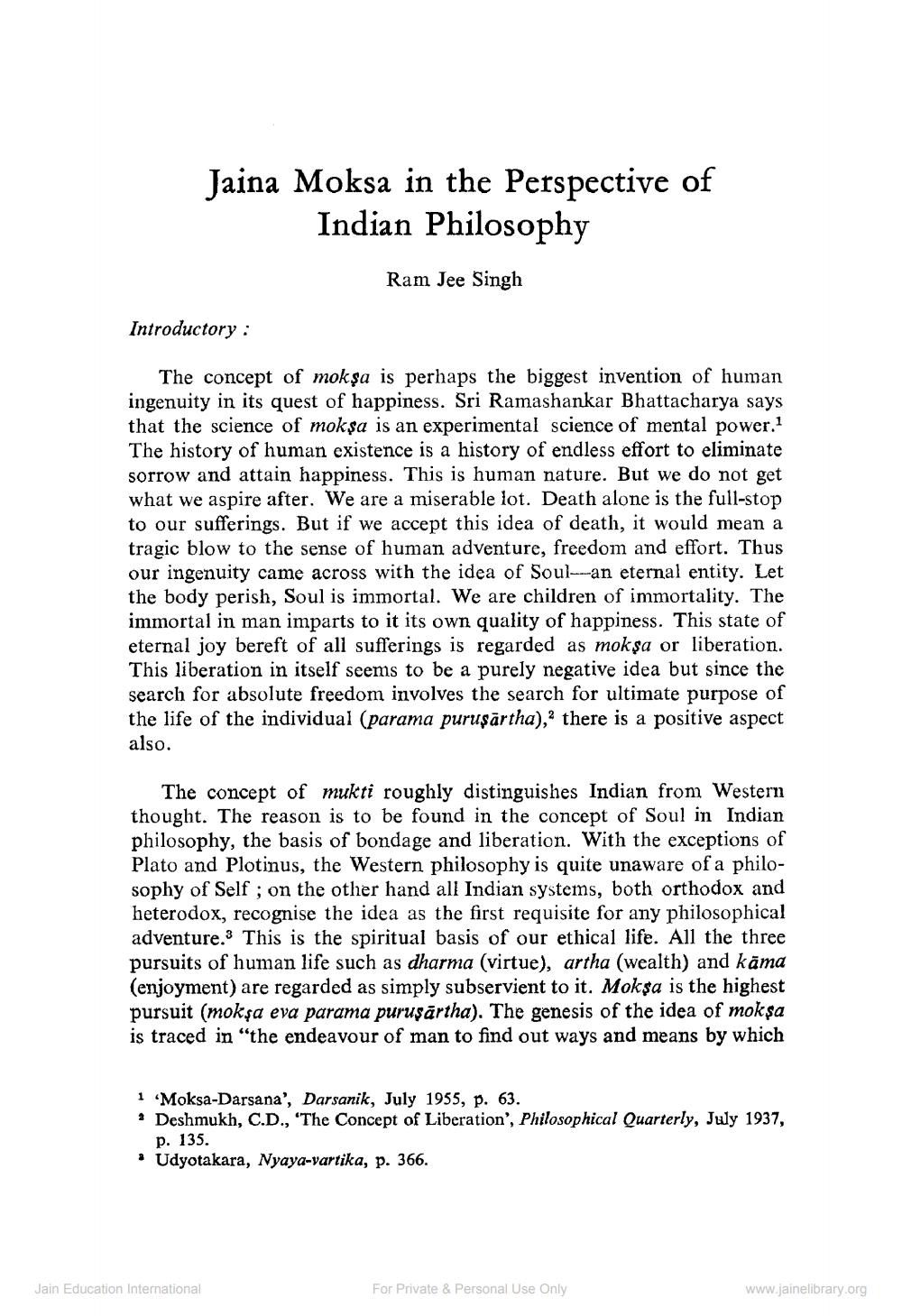________________
Jaina Moksa in the Perspective of Indian Philosophy
Ram Jee Singh
Introductory:
The concept of mokşa is perhaps the biggest invention of human ingenuity in its quest of happiness. Sri Ramashankar Bhattacharya says that the science of mokşa is an experimental science of mental power.1 The history of human existence is a history of endless effort to eliminate sorrow and attain happiness. This is human nature. But we do not get what we aspire after. We are a miserable lot. Death alone is the full-stop to our sufferings. But if we accept this idea of death, it would mean a tragic blow to the sense of human adventure, freedom and effort. Thus our ingenuity came across with the idea of Soul-an eternal entity. Let the body perish, Soul is immortal. We are children of immortality. The immortal in man imparts to it its own quality of happiness. This state of eternal joy bereft of all sufferings is regarded as mokşa or liberation. This liberation in itself seems to be a purely negative idea but since the search for absolute freedom involves the search for ultimate purpose of the life of the individual (parama puruşartha), there is a positive aspect also.
The concept of mukti roughly distinguishes Indian from Western thought. The reason is to be found in the concept of Soul in Indian philosophy, the basis of bondage and liberation. With the exceptions of Plato and Plotinus, the Western philosophy is quite unaware of a philosophy of Self; on the other hand all Indian systems, both orthodox and heterodox, recognise the idea as the first requisite for any philosophical adventure. This is the spiritual basis of our ethical life. All the three pursuits of human life such as dharma (virtue), artha (wealth) and kāma (enjoyment) are regarded as simply subservient to it. Mokşa is the highest pursuit (mokşa eva parama puruşartha). The genesis of the idea of mokşa is traced in "the endeavour of man to find out ways and means by which
1 'Moksa-Darsana', Darsanik, July 1955, p. 63.
* Deshmukh, C.D., 'The Concept of Liberation', Philosophical Quarterly, July 1937, p. 135.
• Udyotakara, Nyaya-vartika, p. 366.
Jain Education International
For Private & Personal Use Only
www.jainelibrary.org




